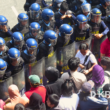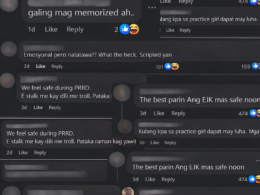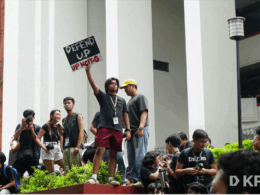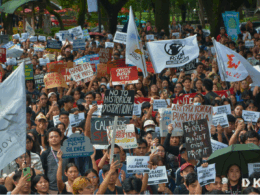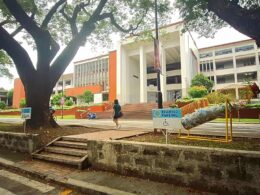Two years after the single deadliest assault on journalists in history, there seems to be little progress in achieving justice for the victims and their families. When human rights lawyer Harry Roque proclaimed that it would take at least 55,000 years before the Maguindanao massacre trials are resolved, Justice Secretary Leila De Lima took offense and laid out an ambitious plan to put closure to what also is the most heinous election-related violence in our country by 2016—the end of President Aquino’s term.
Roque may indeed have been exaggerating, but then our justice system has always been the butt of sorry jokes for its epic length of time it takes to resolve cases, some of which languish in the courts for as long as twenty years before they are settled. If the public can take any consolation, it will be in De Lima’s seemingly unassailable fortitude to get things done, as was evident in the recent showdown between the DOJ and the Supreme Court regarding the hold-departure order for former President Gloria Arroyo.
Yes, it has been two years after the Maguindanao massacre, but our country still does not seem to be any safer for journalists than it was in Arroyo’s time. Despite President Aquino’s constant refrain of upholding the democracy and protecting free press, eleven media workers have been killed since he assumed office in June 2010. And he has no one to blame but himself.
The recent exclusion of the Freedom of Information bill in the recent Legislative-Executive Development Advisory Council (LEDAC) list of priority bills paint a stark picture against what otherwise seems to be an earnest and even overzealous drive of the Aquino administration to investigate the allegations heaped against the former president. The FOI bill will have empowered journalists and ordinary citizens alike to keep check on the government official’s excesses. It will have reduced red tape, opened our treasury ledges to public scrutiny, and allowed more transparency in the releasing of many government records—all of which should be central to any self-respecting democracy.
To have pushed for the FOI bill would have translated to a genuine initiative from a popular president to enlist the people’s help in uncovering the wrongdoings in the government. Now Aquino seems to be hell-bent on pursuing Arroyo for her alleged crimes, but how can he expect the media and the public to help him if he cannot even put in place a win-win policy that may even expedite our quest for justice? What exactly is stopping him from using his political heft—his ratings have consistently been high despite his lackluster performance—to pushing for an FOI bill so critical if our democratic project is to succeed at all?
It is a testament to the Filipino journalist’s ingenuity that despite the odds stacked against him, he still continues to inform the public and even break ground on controversial issues. But so long as the real gatekeepers of information remain the uncouth government clerks who are shackled by partisanship or fear of retribution from their superiors, then there really is no telling when the culture of impunity will end, if it is going to end at all. Our democracy, already fractured as it is, is in danger. And the president, its sworn defender, seems to be unwilling to do anything.
This article was retrieved from a Wayback Machine archive of UPJC’s old website on July 13, 2024, 04:05:38 GMT.



